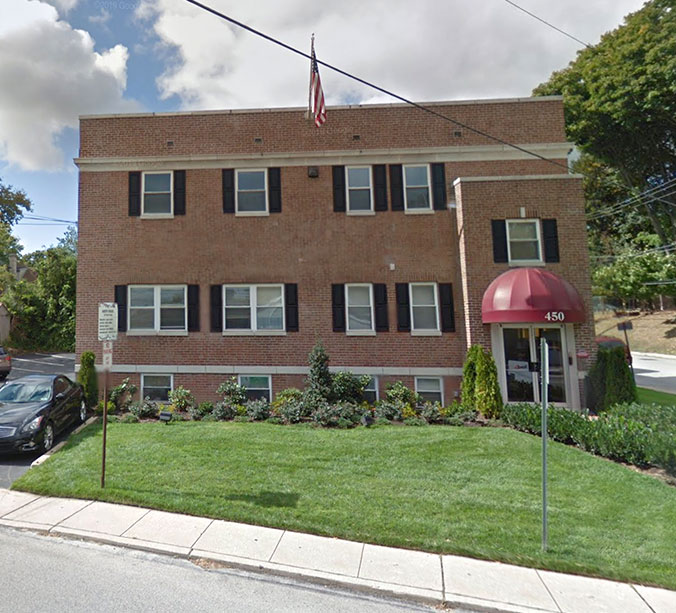Contact info
Montgomery County Courthouse
2 East Airy Street
Norristown, Pennsylvania 19404
(610) 278-3224
Driving directions
Are you under investigation in Montgomery County, Pennsylvania? Now’s the time to talk with a lawyer about the Pennsylvania criminal process. You might be closer to facing charges than you realize.
Montgomery criminal defense attorney Michael Fienman will represent your interests, explain the criminal investigation, and handle any proceedings in court. We’ll fight whatever charges come your way and help resolve any grand jury indictments in your favor.
Call (610) 828-3338 today or use our online form to schedule your free and confidential consultation.
Montgomery County Charges: With or Without a Grand Jury
There are two ways to face criminal charges in Montgomery County:
A Preliminary Hearing Instead of a Grand Jury
If the police have probable cause you committed a crime, they can arrest you. Then the prosecutor moves forward with charges without a grand jury.
In this scenario, you go through a preliminary hearing, which is when the prosecution must show the judge there’s probable cause you committed a crime. Having a lawyer at this stage is crucial because it is your first chance to challenge evidence and refute the charges.
The Grand Jury Process
In more complex cases, like sophisticated frauds or drug trafficking, the prosecutor asks the judge to summon a grand jury. Usually, the jurors all come from one county. The Pennsylvania Attorney General’s Office asks the Pennsylvania Supreme Court to call a multi-county grand jury for huge cases.
After a judge agrees to convene a grand jury, investigators gather evidence to present to the jury. A supervising judge oversees the grand jury selection and makes sure the grand jury process follows the rules.
Once the jurors are selected, the government presents its case. The jury also has the power to ask for more evidence through subpoenas and warrants. At any point, the prosecutor’s office can decide to drop the case or ask the grand jury for a presentment or report.
Why Do Prosecutors Use a Grand Jury?
Prosecutors use grand juries when they want the jury to find out more information. Grand juries can compel witnesses to speak under oath. They also can hand down search warrants and subpoena records.
A grand jury isn’t always the prosecutor’s or the police’s idea. Sometimes state agencies request the AG’s office to investigate a relevant matter through a grand jury.
Grand Juries in Montgomery County, PA
A grand jury in Pennsylvania is a group of 23 citizens.
A grand jury isn’t the same as a criminal jury, which determines guilt. In Pennsylvania, a grand jury investigates and decides if a person likely committed a crime. If so, it makes a recommendation to the prosecutor called a “presentment.”
Another way in which grand juries differ from criminal juries is that they’re secret. It’s rare for people who aren’t involved with the grand jury to know about it. Even if you’re the suspect, you might not be aware of it.
If you are a target of an investigation, you don’t get to go to the grand jury or defend yourself. If you learn about the grand jury beforehand, it may be possible for your lawyer to attend with the permission of the prosecutor. But your lawyer cannot present evidence or cross-examine anyone. Grand juries are one-sided, and only the government presents evidence.
What’s In The Presentment?
A grand jury presentment is a formal recommendation that the prosecution charges someone with a crime.
A grand jury can also give a report for legislative, executive, or administrative action that it believes is in the public’s best interest. This report is a non-criminal recommendation. In other words, no one gets charged with a crime afterward.
Is a Presentment the Same as an Indictment?
No, a presentment is a recommendation for the prosecutor to do something. The prosecutor has discretion in whether to file charges. An indictment is a criminal charge against someone. Other states’ grand juries issue indictments.
Where do Grand Juries Take Place?
Montgomery County has the Court of Common Pleas and the Magisterial District Courts. The Court of Common Pleas handles many types of cases, including misdemeanor or felony crimes. The Magisterial District Court decides summary offenses (the lowest criminal offense).
A Montgomery County grand jury would convene at the Court of Common Pleas located at 2 East Airy St., Norristown, PA.
What Happens After a Montgomery County Grand Jury
If you were the subject of a grand jury that issued a presentment, the prosecutor would probably file charges against you. The prosecutor must submit a bill of “information” to the judge to begin criminal proceedings, and they’ll often use the presentment itself. The presentment lays out all the facts and the basis for the criminal charges.
At that point, the prosecutor may issue an arrest warrant. Or your lawyer and the prosecution might negotiate a way for you to avoid a public arrest. For example, you may voluntarily turn yourself in -perhaps knowing you will be released on bail.
Call a Montgomery County, PA Defense Lawyer Today
It’s essential to hire a Montgomery County criminal defense lawyer as soon as possible. Once you know you are under investigation or think the police suspect you, give Fienman Defense a call. It helps to prepare for an arrest or grand jury presentment.
You can reach Fienman Defense at (610) 828-3338 or through our online form. Our Montgomery County office is conveniently located at 450 N Narberth Ave, Suite 2 in Narberth, Pennsylvania.

